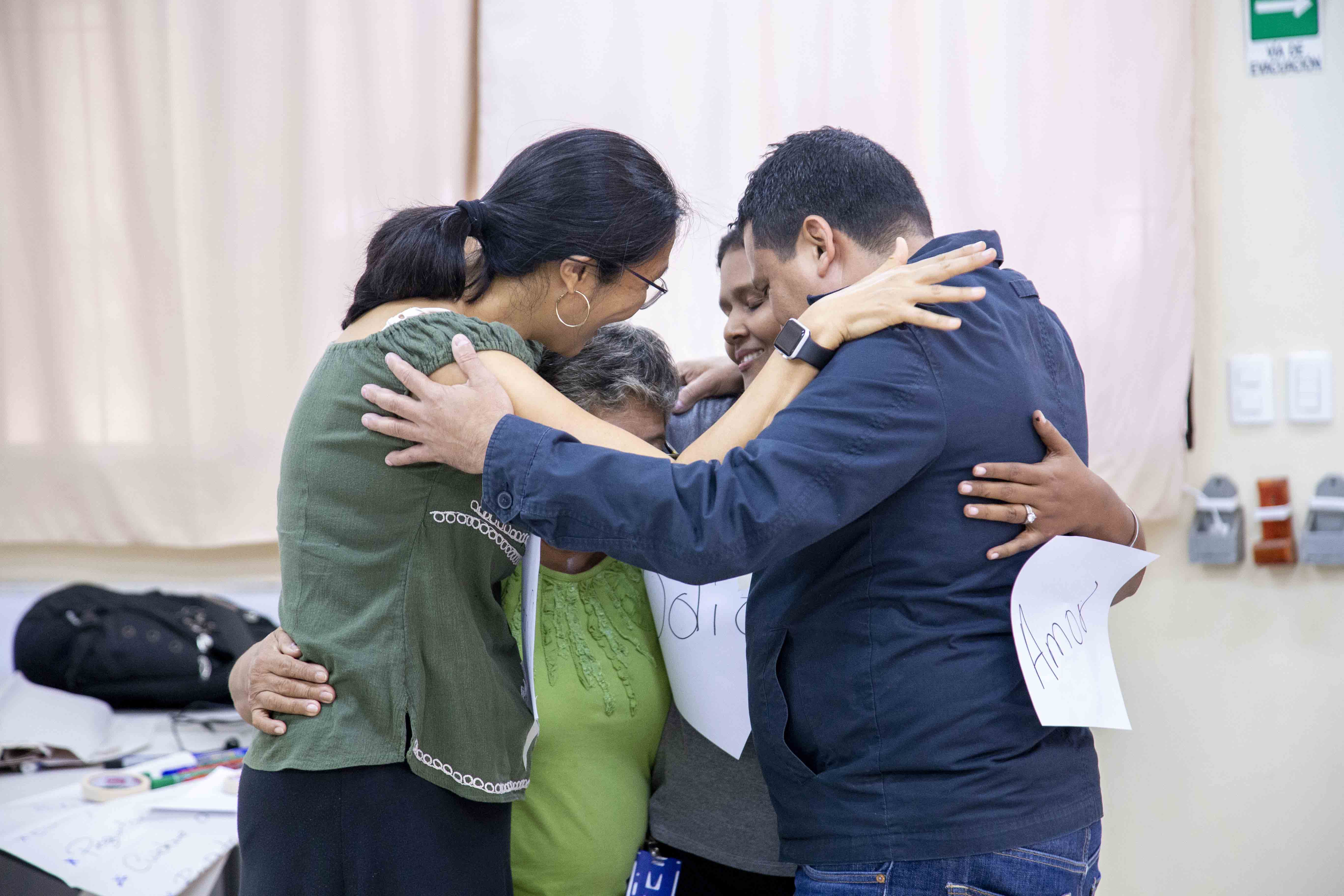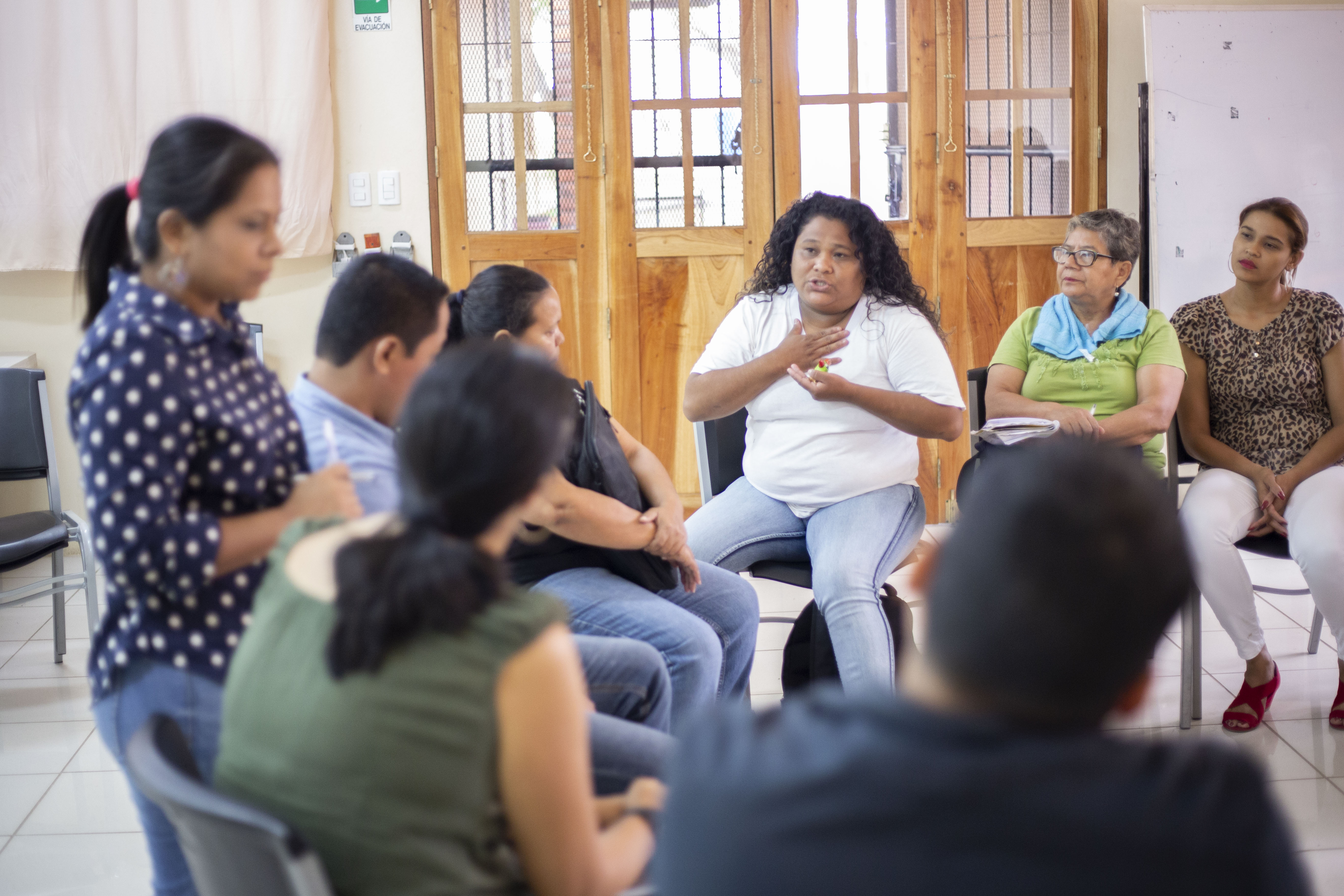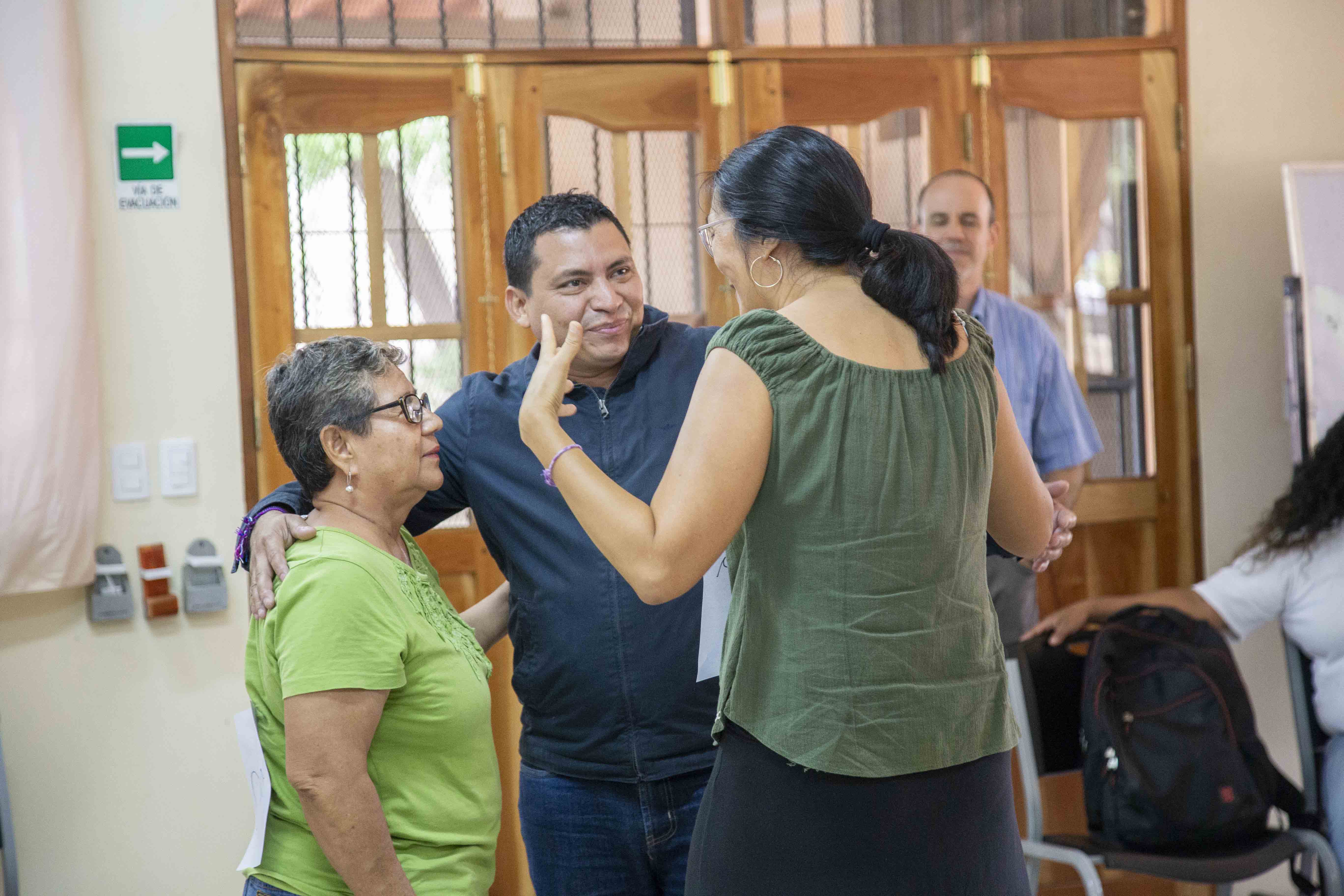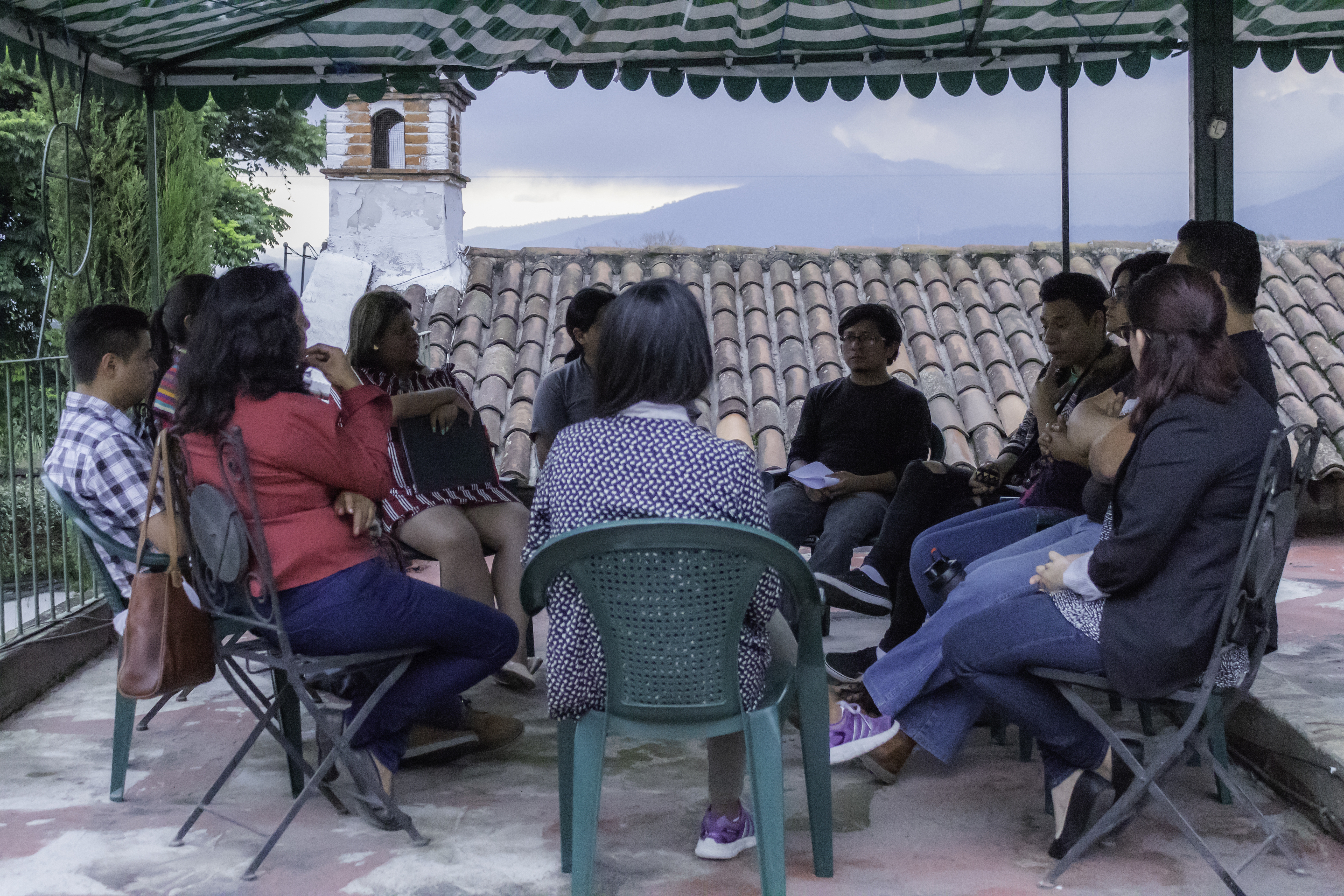
Violence boiled over in Nicaragua in April 2018. Citizens protested government social reforms and police responded with extreme brutality. The newspaper La Prensa reports 351 dead, 2,100 injured, 329 imprisoned and 68 tortured.
The country has since become polarized. There have been waves of anarchy: looting, arson and violent conflict, even among families.
AMOS, an NGO that delivers health interventions in Nicaragua (http://www.amoshealth.org), is helping its staff and clients deal with this nightmare.
IIRP Latin America first provided circles training for AMOS in 2009. They took to the process immediately, and it has become part of their organizational culture. They use circles to address conflict in the communities where they work, to make decisions and address staff tensions. During the current upheaval, circles have become a beacon of hope for AMOS's staff and the communities they serve.
“We have been using circles every week since the tensions started," states Dr. Laura Parajón, AMOS Cofounder and Medical Director. "Many of our staff members live in neighborhoods where violent conflict is taking place. The circle is the only space where they feel safe to speak about what is happening.”

AMOS set circle norms to address the strong feelings that come up. "We start with the idea that we are all human beings," Medrano explains. "We listen respectfully, even if we disagree. We don't judge." They mix the circles with activities like drawing, sculpture, breathing exercises and games to help people relax.
The circles have allowed participants to express their sadness, frustration and anger. They've found ways to support each other emotionally and with practical matters, such as adjusting their schedules and keeping each other informed to avoid dangerous activity and violence. Staff are taking circles home to facilitate respectful dialogue with their families and neighbors. AMOS also is sharing the process with other nonprofits. Most of all, circles are helping people realize that they are not alone, and find hope.

Her goal is to train community leaders in the devastated areas to use circles. The circle process is giving these individuals "a resource to address those affected in a way that respects their dignity and pain, and allows their voices to be heard," García observes.
“I am so excited that the authorities approved the use of restorative practices and circles. I was concerned they would only advocate the use of therapeutic processes, but I'm convinced that the most important thing people affected by the volcano need right now is to be listened to and feel comfort in the presence of others,” García maintains.
A circle with first responders was immensely helpful. It enabled them to express how they had been affected by the devastation, loss and suffering they had witnessed and support one another in the midst of so much tragedy.
 Suggesting they touch their throat and close their eyes, García asked participants, "What do you need to do to continue responding to the situation in a way that is compassionate towards yourself and others?" They responded: "Rest a little." "Cry." "Dedicate time to my son without being bombarded by news of the disaster." "Turn off the phone a moment." "Eat; take care of me." "Learn to say no." "Think about medium- and long-term strategies for our affected young people." "Look for spaces of silence."
Suggesting they touch their throat and close their eyes, García asked participants, "What do you need to do to continue responding to the situation in a way that is compassionate towards yourself and others?" They responded: "Rest a little." "Cry." "Dedicate time to my son without being bombarded by news of the disaster." "Turn off the phone a moment." "Eat; take care of me." "Learn to say no." "Think about medium- and long-term strategies for our affected young people." "Look for spaces of silence."
García is facilitating circles with government-run shelter managers to help them express how they have been affected by the disaster. She is also training community leaders and shelter managers to facilitate circles themselves.
She considers it essential to strengthen the leaders who will continue working with these communities for a long time. She concludes, "We believe these skills can remain in the community and be truly sustainable over time."
Miguel Tello teaches the IIRP Graduate School course, Restorative Justice: Global Perspectives.
